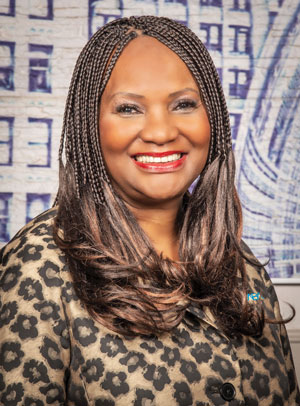Gideon at 60: The right to a lawyer was established, but the promise of equal justice remains elusive

Photo of Deborah Enix-Ross by Harvey Tillis
“You have the right to an attorney. If you cannot afford an attorney, one will be provided to you.”
You don’t have to have attended law school to know these words. They are repeated in nearly every police drama on television and in the movies.
Most Americans believe that access to an attorney during criminal proceedings is a foundational right in our country. But the right to have an attorney provided by the government has not always existed. Until 60 years ago, indigent defendants who could not afford an attorney had to defend themselves in court.
But on March 18, 1963, that all changed. The U.S. Supreme Court rendered one of its most famous decisions in the case of Gideon v. Wainwright.
Clarence Earl Gideon was a drifter who in 1961 was arrested and charged with breaking and entering after an alleged theft at a pool hall in Florida. Gideon asked the court for an attorney since he had no money. However, Gideon’s request was denied because at the time, the government was required to provide representation only to indigent defendants in capital cases.
Gideon was convicted and received five years in prison, the maximum sentence. After exhausting his appeals, he drafted a handwritten note on prison stationery to the U.S. Supreme Court, which took his case and ruled unanimously that the Sixth Amendment guaranteed Gideon and all others facing serious criminal charges the right to a lawyer, whether they could afford to hire one or not. States were bound by the decision under the Fourteenth Amendment. On retrial with an attorney, Gideon was acquitted of all charges.
The landmark decision was hailed as a triumph for justice and led to the creation of public defender offices around the country. Justice Hugo Black, who drafted the decision, wrote, “lawyers in criminal courts are necessities, not luxuries.”
Black argued that state and federal constitutions have emphasized safeguards designed to assure fair trials where “every defendant stands equal before the law. This noble ideal cannot be realized if the poor man charged with crime has to face his accusers without a lawyer to assist him.”
But 60 years later, has this “noble ideal” really provided equal justice? The quality of criminal defense services can vary widely. States and localities each use different systems to provide indigent defense, from state- and county-based public defenders to appointment systems that reimburse private attorneys who represent indigent defendants.
Many public defenders are plagued by inadequate funding or excessive caseloads. The ABA, through its comprehensive state reports and yearly Public Defense Summit, works to identify and address these problems.
Studying the problem
Last year, the ABA Standing Committee on Legal Aid and Indigent Defense published reports on Oregon’s and New Mexico’s public defense systems. The Oregon Project found that the state needs an additional 1,296 full-time or contract attorneys—more than three times its current level—to meet the standard of reasonably effective assistance of counsel guaranteed by the Sixth Amendment.
The New Mexico Project found that the state currently has only 33% of the attorneys needed to provide reasonably effective representation.
And a 2017 study by the ABA found that public defenders in Louisiana had almost five times the workload they should.
Six decades after the Gideon ruling, its promise remains unfulfilled. Millions have benefited from the decision. But the underfunded public defense systems in too many locations undercut the concept of equal justice under the law.
During his Supreme Court case, Gideon wrote to his lawyer, Abe Fortas, “I believe that each era finds a[n] improvement in law. Each year brings something new for the benefit of mankind. Maybe this will be one of those small steps forward.”
Little did he know how consequential his “small step” would turn out to be. But we, as lawyers, need to carry the ideals of equal justice forward, advocating for better funding and supporting a more level playing field for indigent defendants.
Follow President Enix-Ross on Twitter @ABAPresident or email [email protected].
Write a letter to the editor, share a story tip or update, or report an error.


